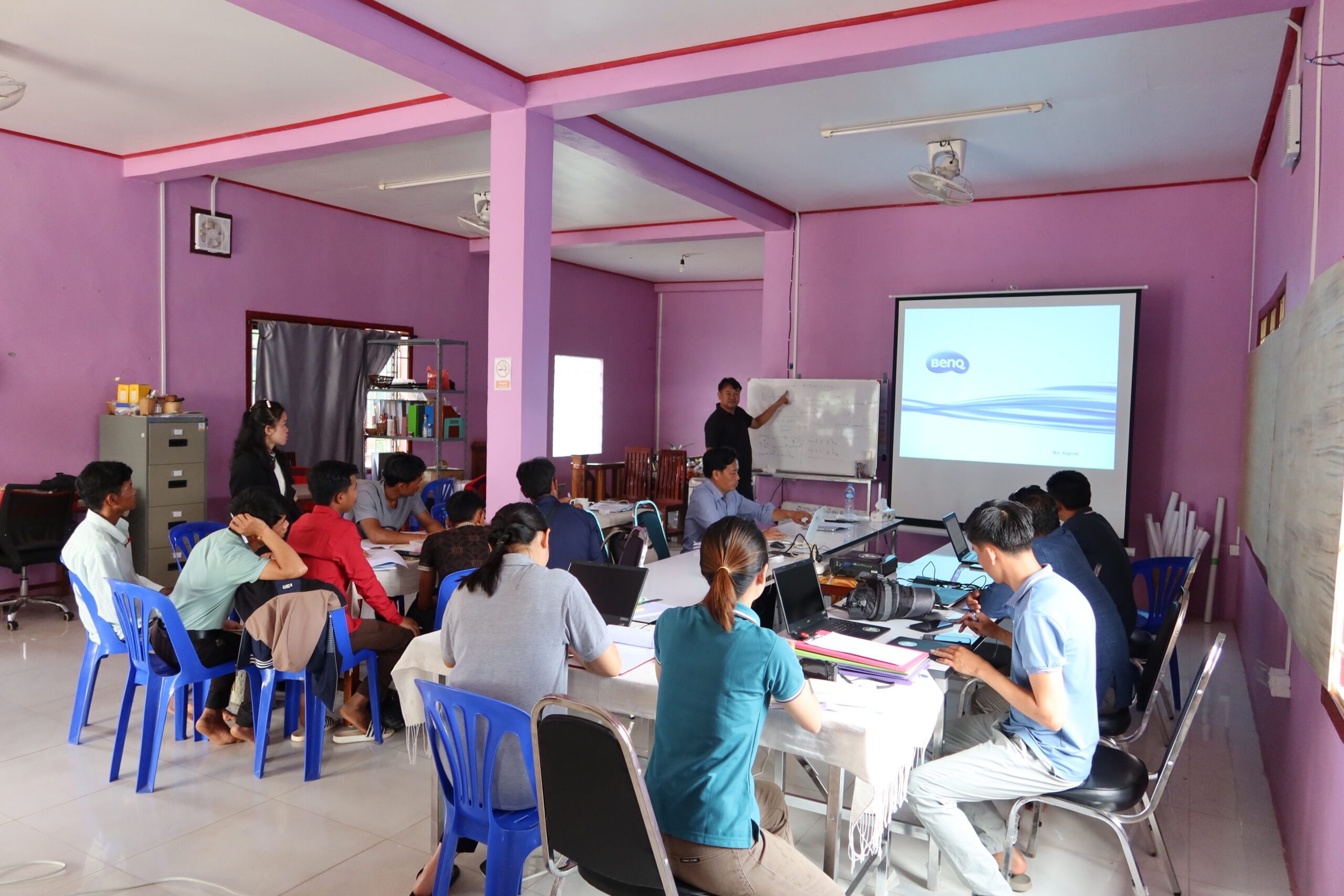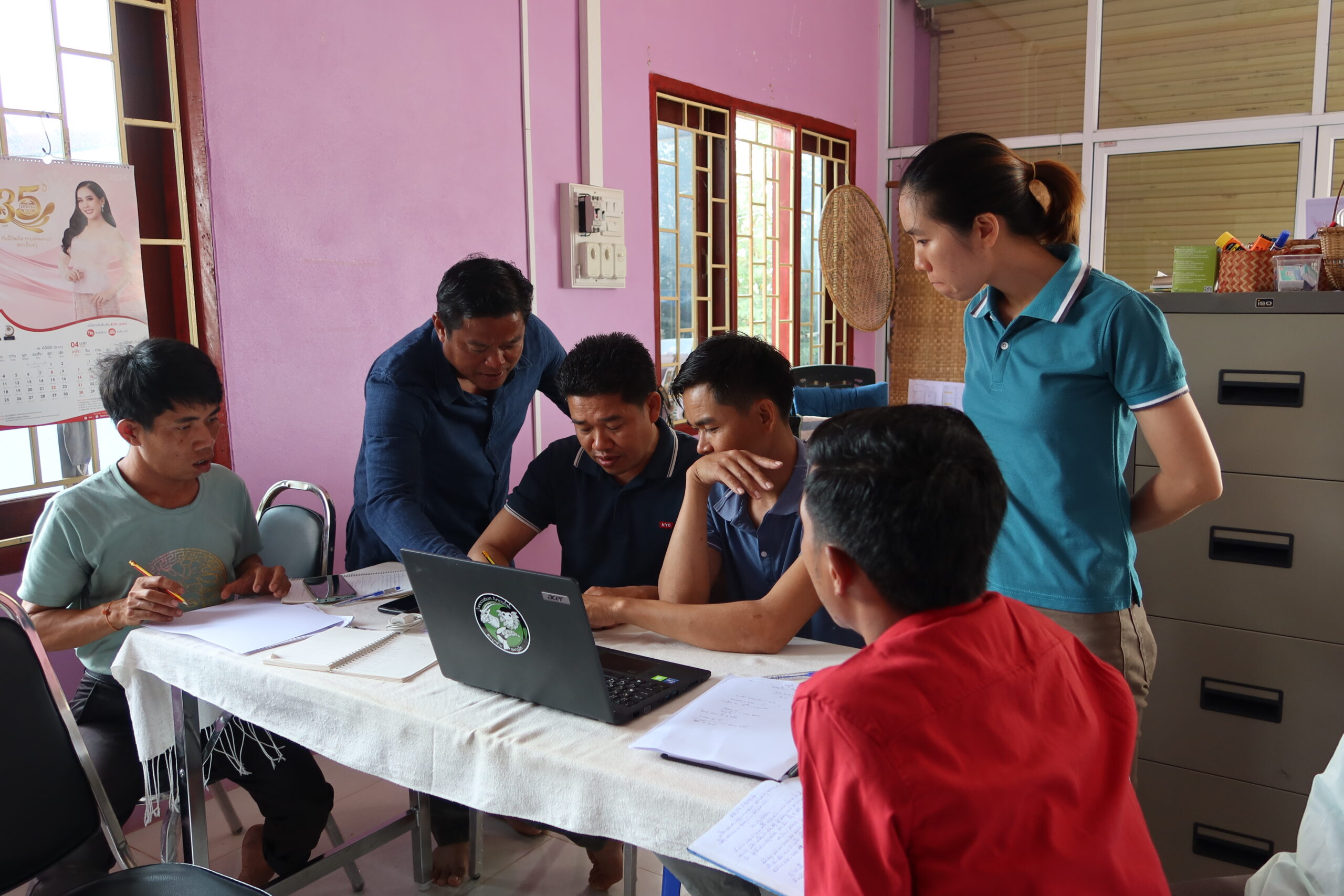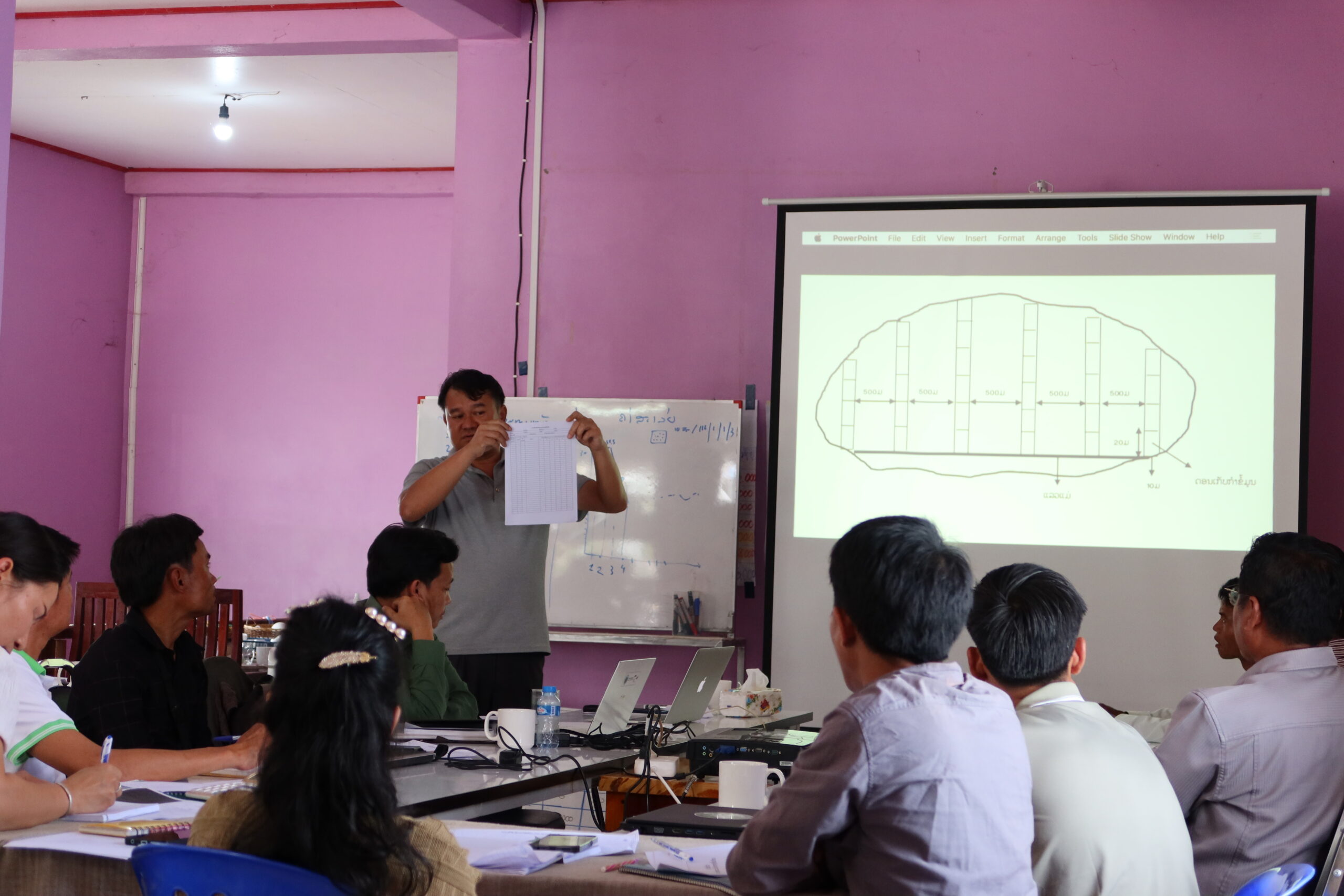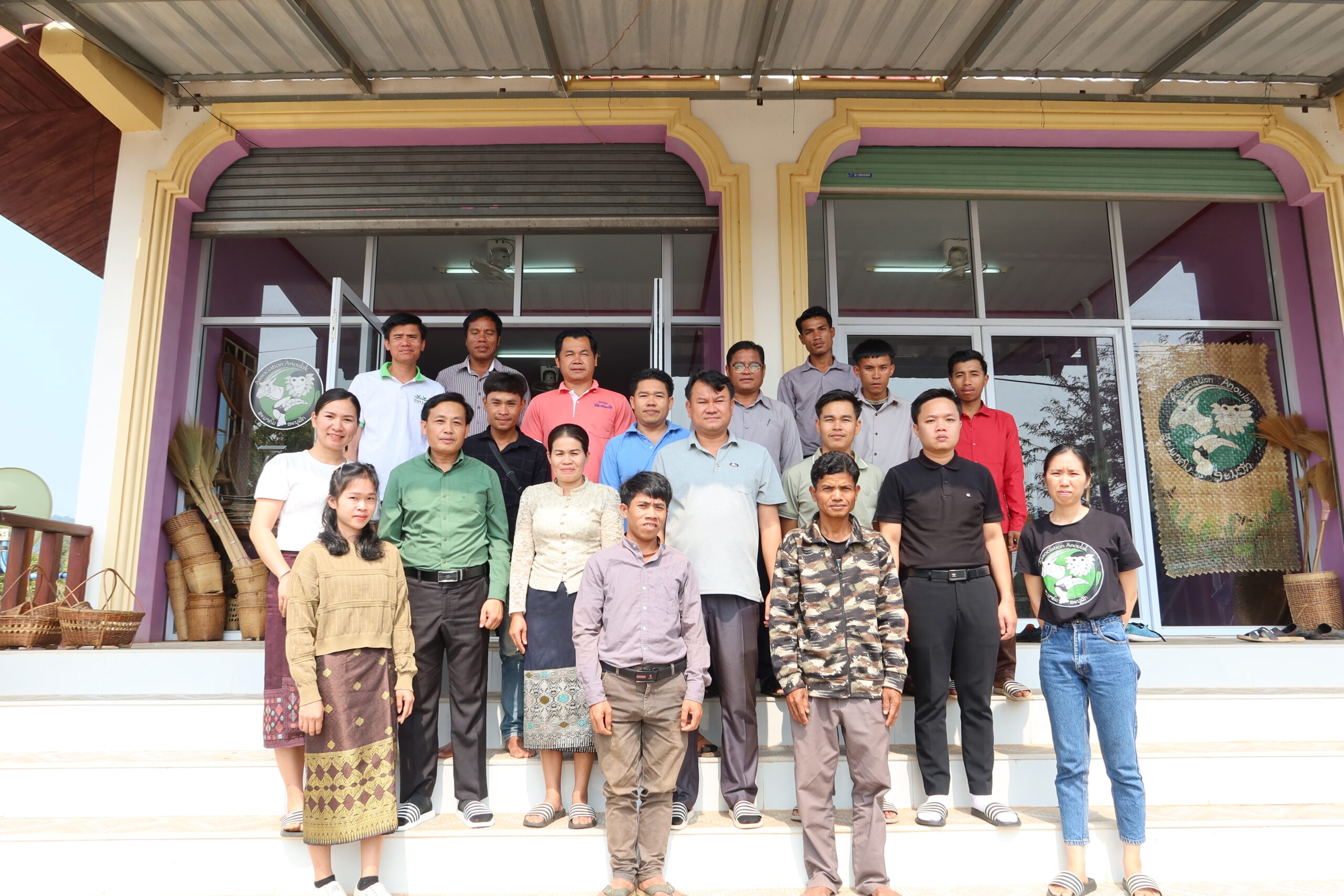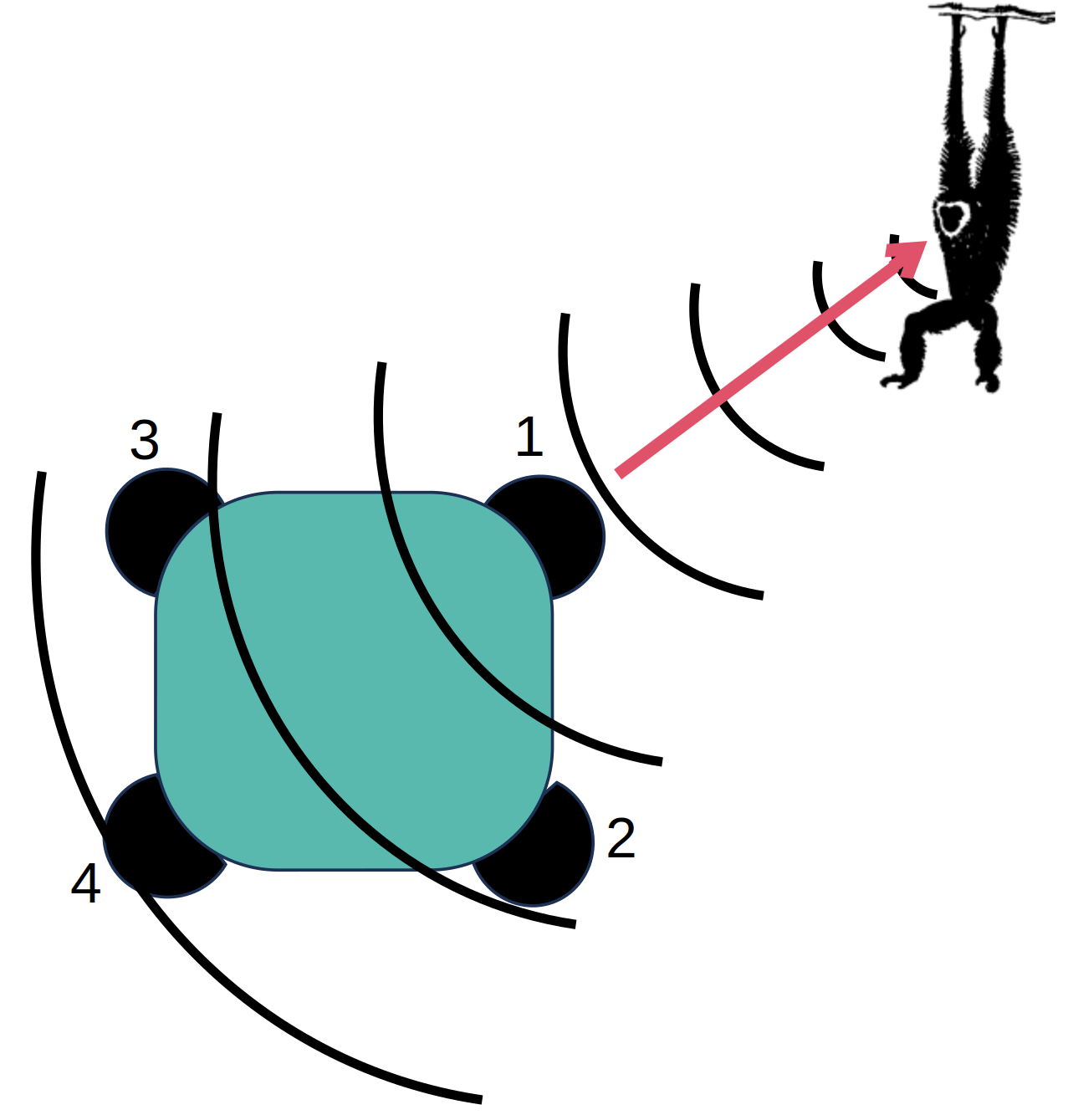
Gibbon surveying in the digital age: field testing of first automated acoustic recorder prototype
March 7, 2024
Presentations to the international community
April 11, 2024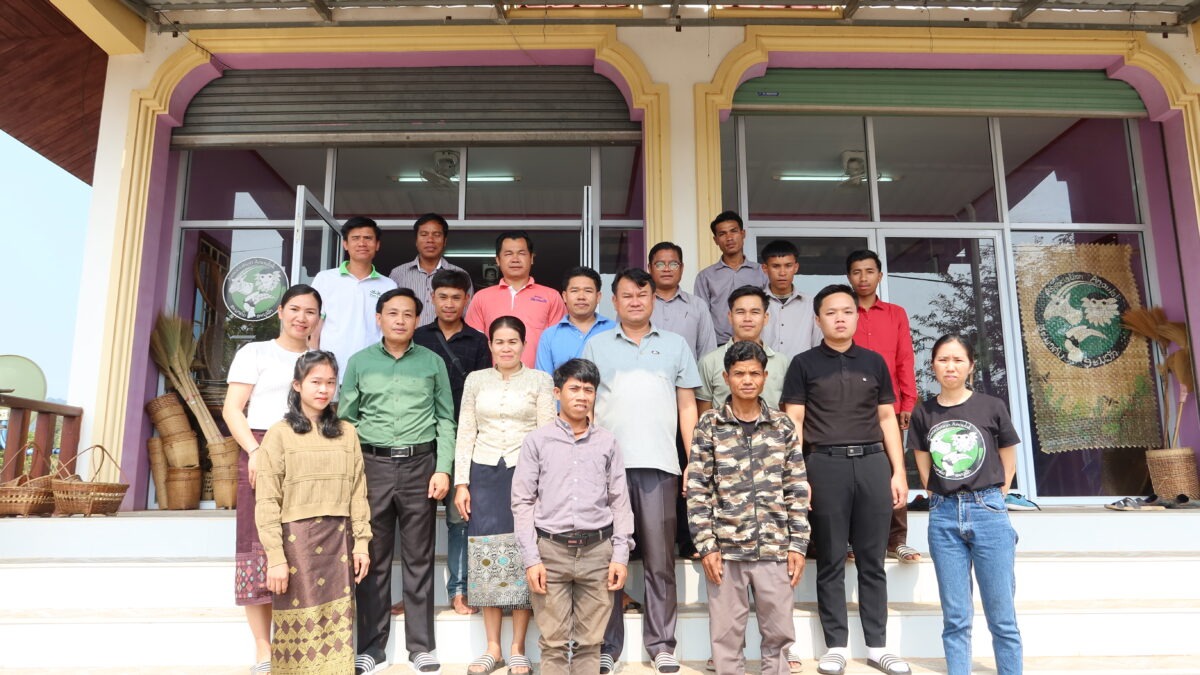
From 13 to 18 March 2024, we facilitated and organized a training for villagers and local partners on methodology to conduct field assessments of Non-Timber Forest Products (NTFPs) available resources. For this training, the focus was on the plants used by local villagers to produce the handicrafts they sell (i.e., Bamboo, Rattan, Pandan).
The two trainers were from the Faculty of Forestry Science (Prof Dr. Viengsamone Thammavong) and the Department of Forestry (Mr. Phonphanh LuangAhphai). The training was attended by representatives from PAFO, DAFO, NNT NP, DoNRE, Association Anoulak, and the village facilitators from our program’s four target villages in Thaphaibanh cluster.
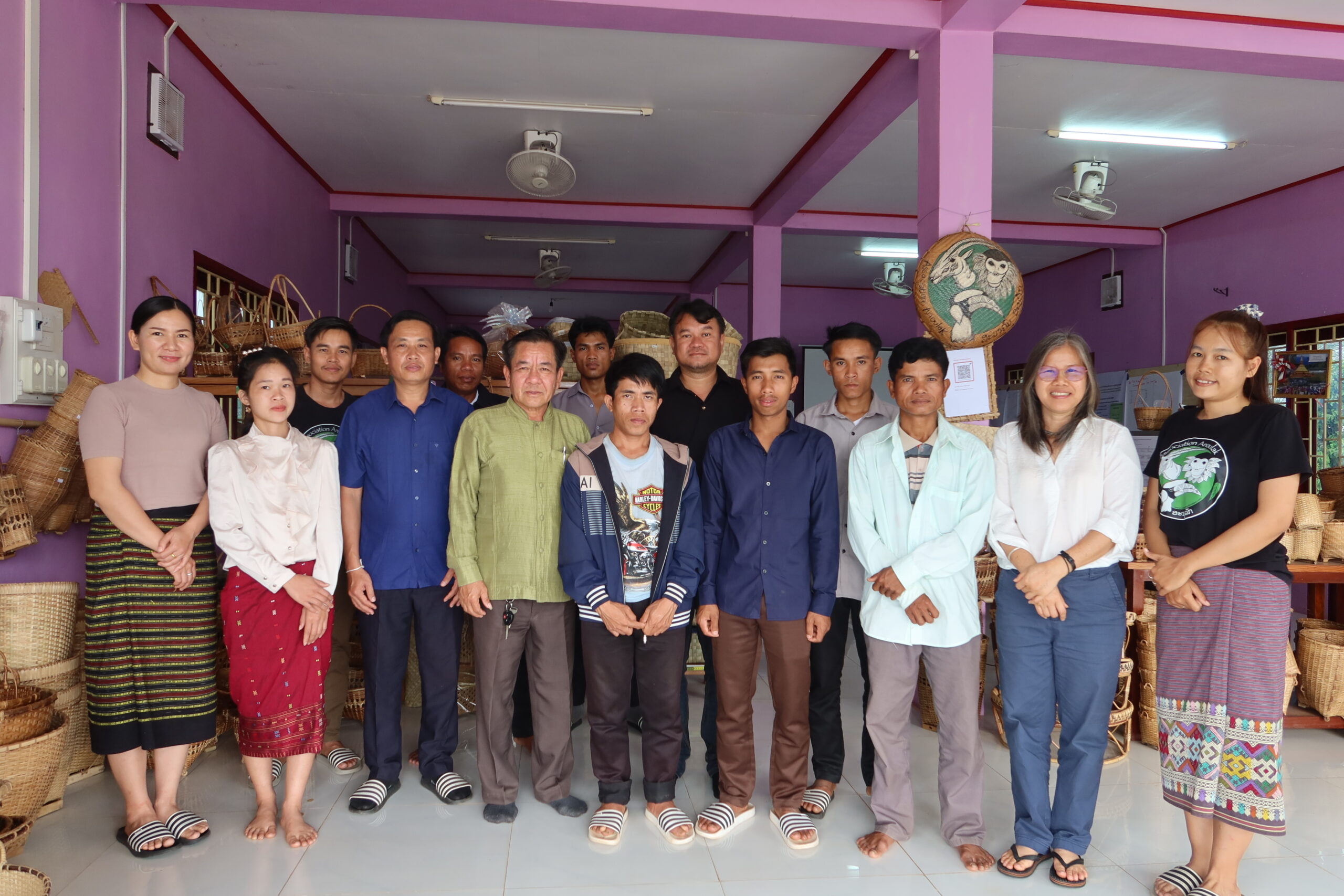
Two trainers Prof Dr. Viengsamone Thammavong and Mr. Phonphanh LuangAhphai in presence of the trainees
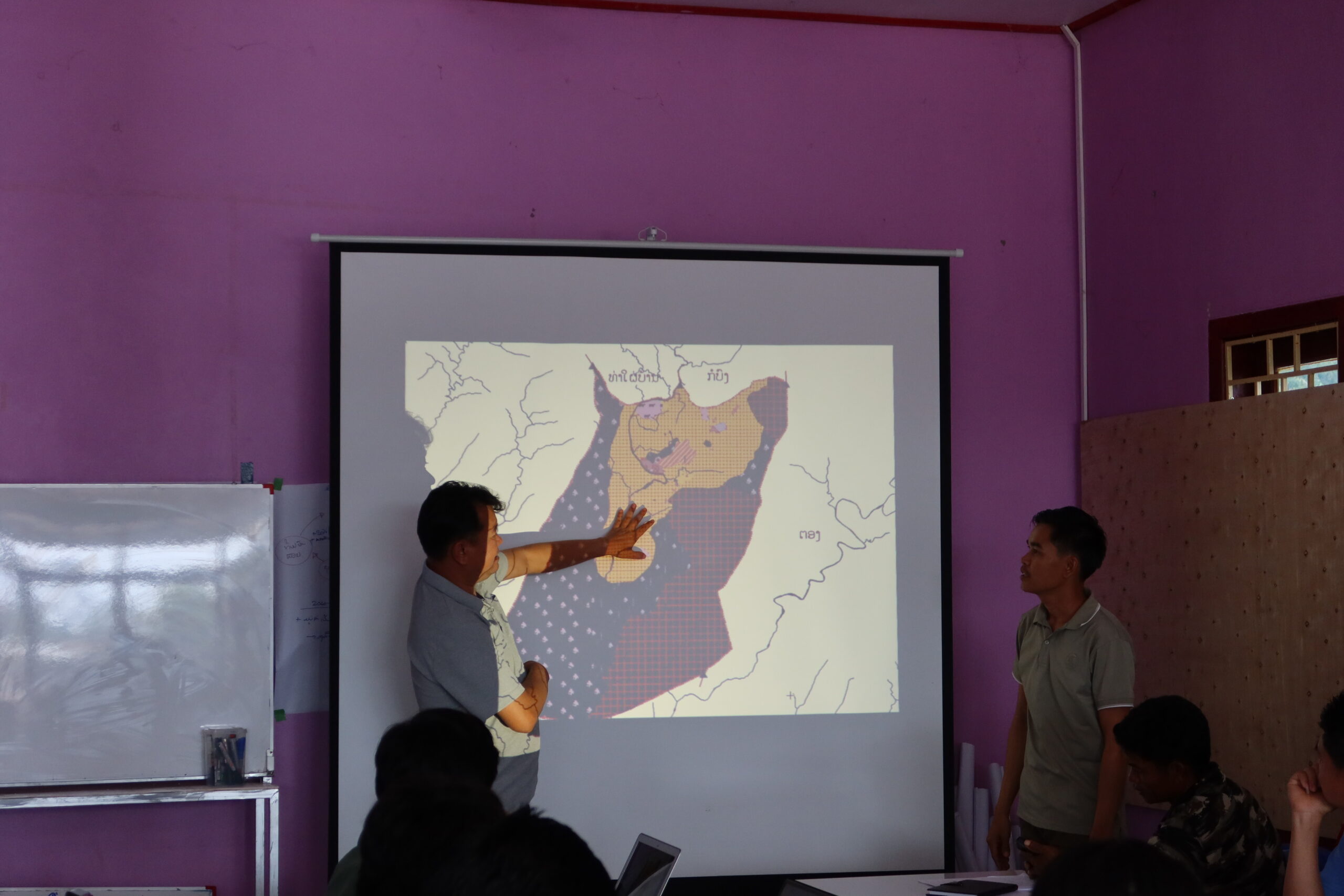
Prof Dr. Viengsamone Thammavong teaching trainees
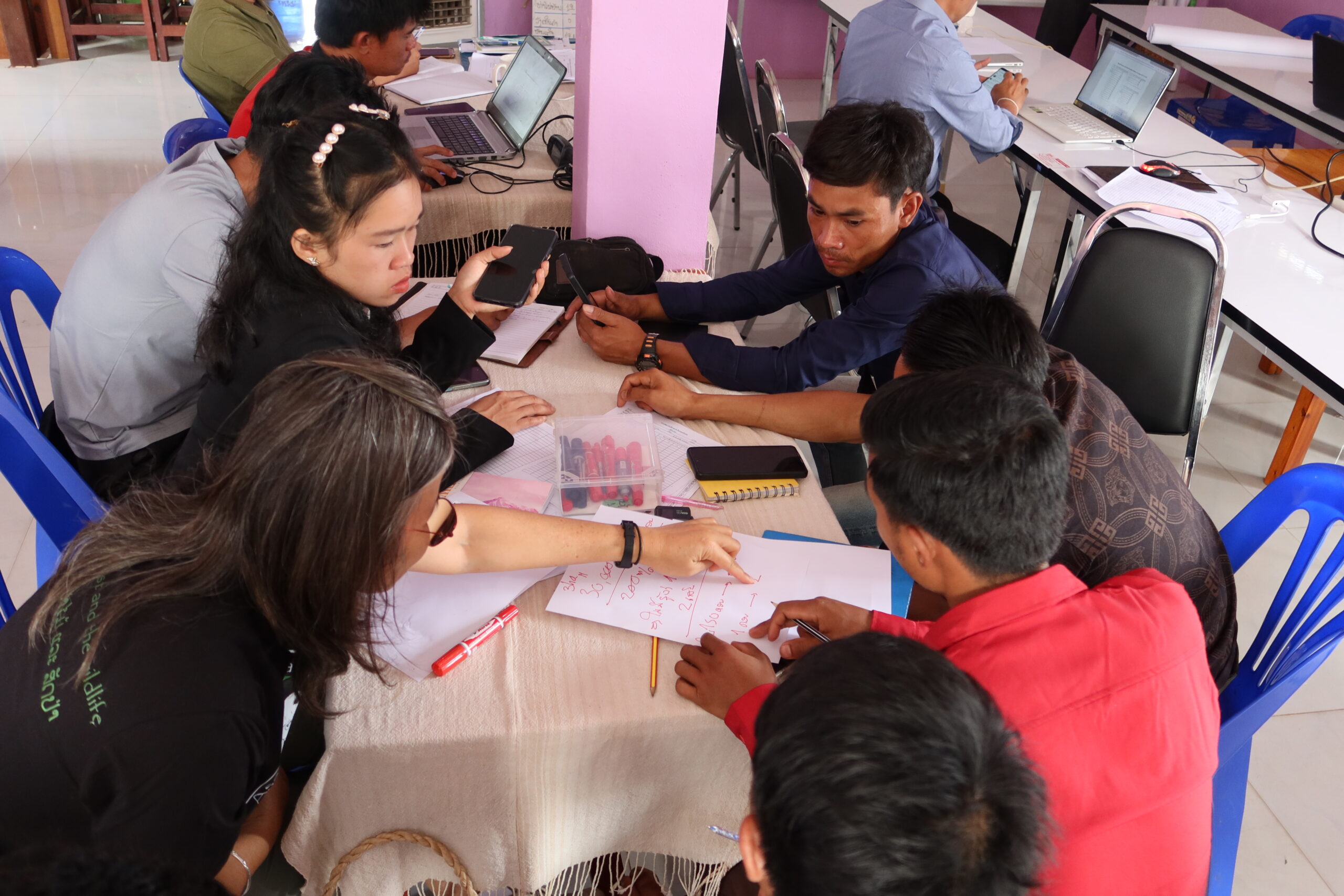
Trainees practicing analysis of data collected during field practice
The training included theory lessons on data collection, data management, data analysis methodology, and field practice in villages. The field practices included the set-up of sampling plots, within which plants were counted according to the method.
Monitoring natural resources in the community and family forests, where these are collected, forms an integral part of our program Community Resilience and Biodiversity Conservation in Nakai District, in which we support local communities in the value chain of their traditionally made handicrafts. Furthermore, our team has previously provided training on collecting plants sustainably to ensure their re-growth and raising awareness for protecting natural resources. These contributions will ensure the program’s sustainability by preventing resource depletion.
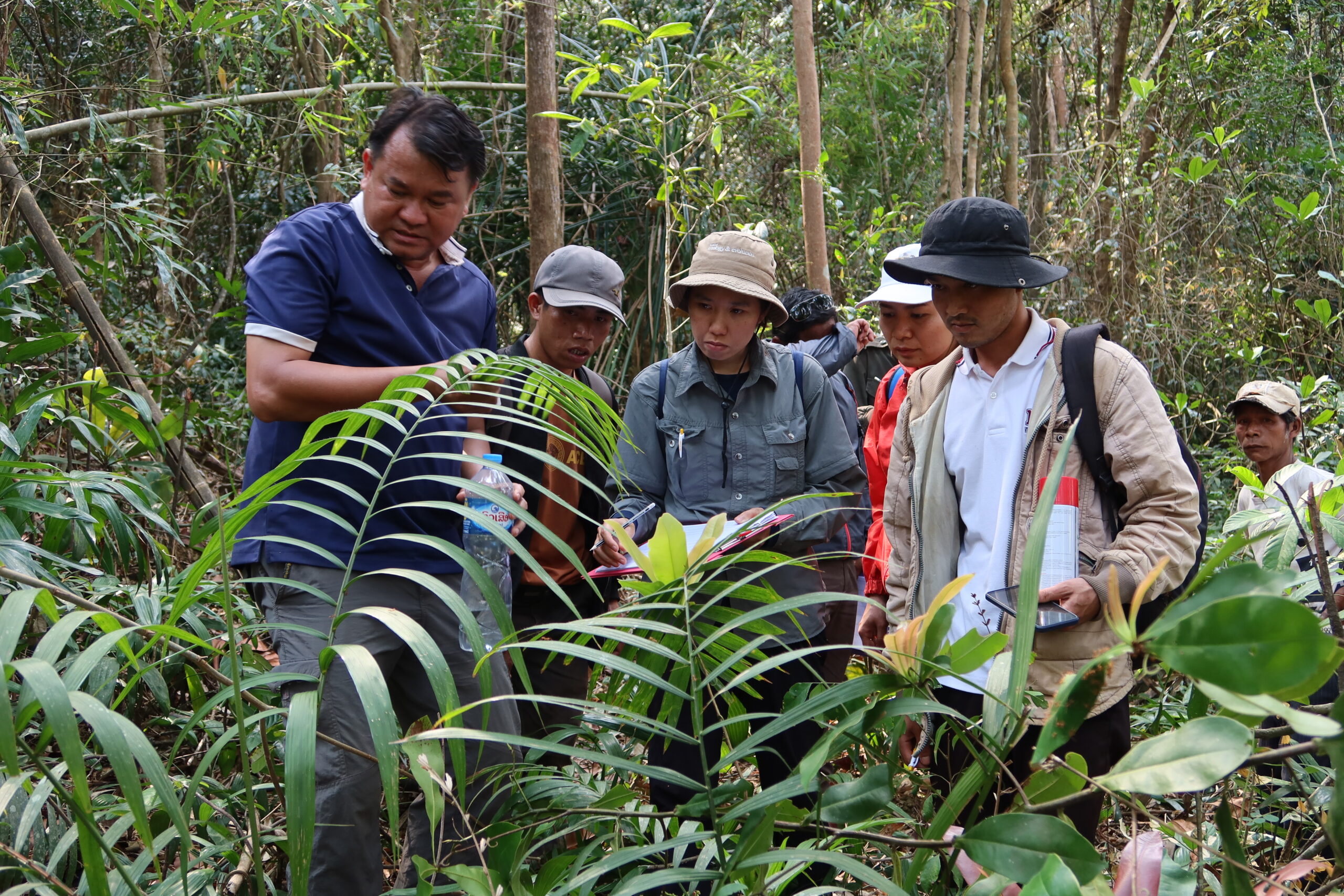
Field practice
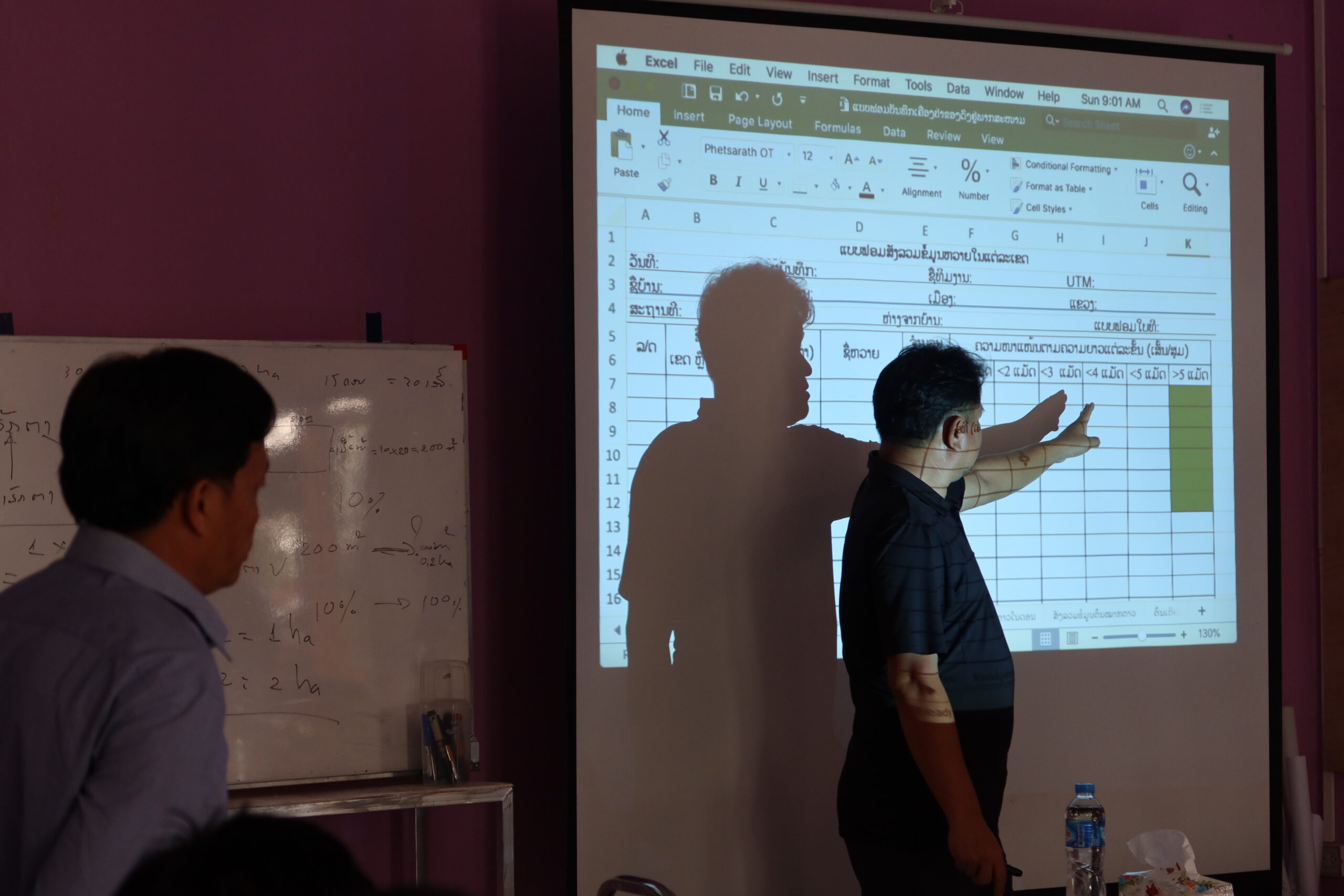
data analysis training
Association Anoulak team will continue supporting and training the village facilitators to implement the assessment within the community forests of the villages. The evaluation results will be presented to the village authorities and villagers for consultation and decision-making on NTFPs assessment, after which an agreement will be reached with district partners to continue to lead and monitor this activity with support from Association Anoulak.
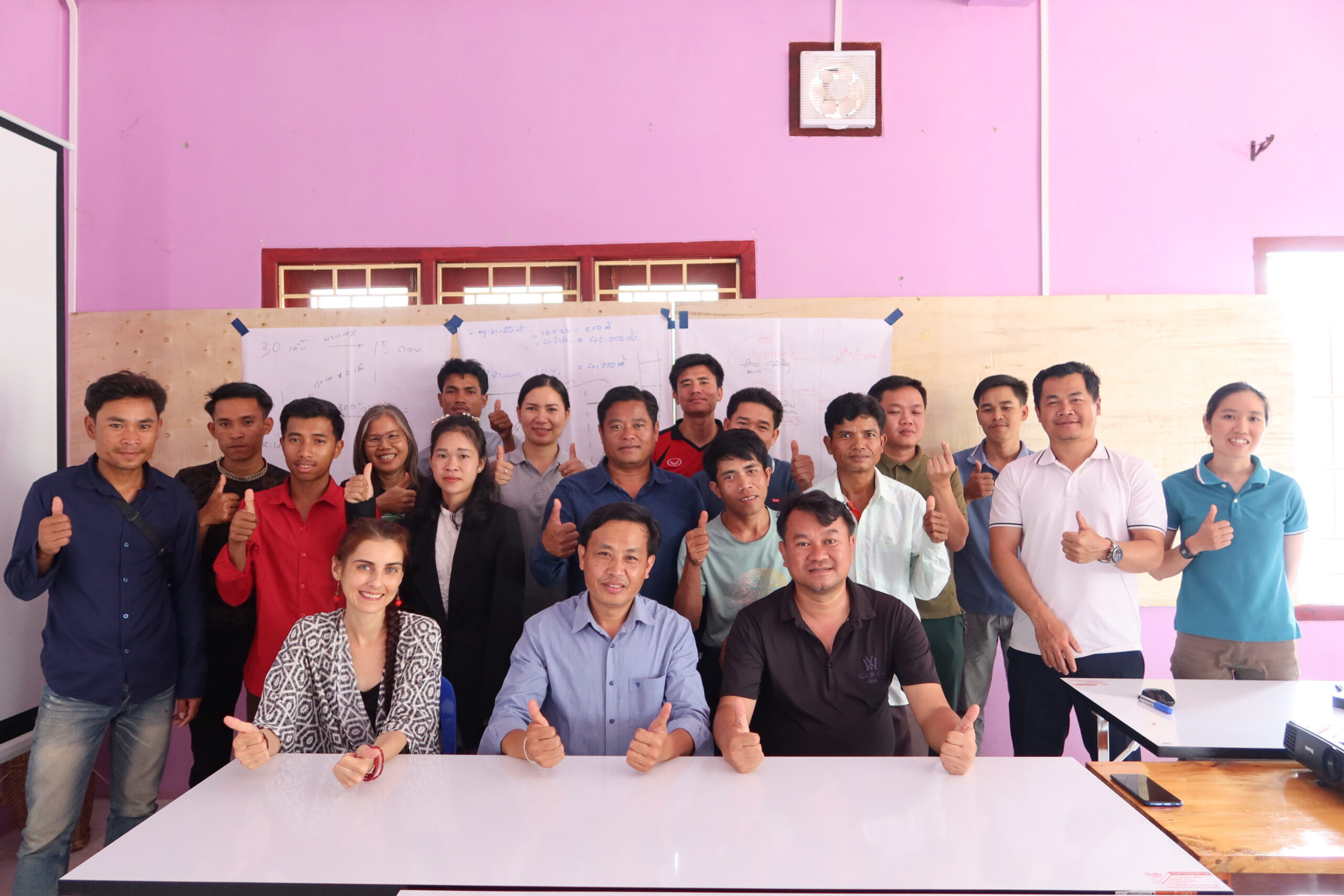
Training participants with trainers, in presence of Association Anoulak director.
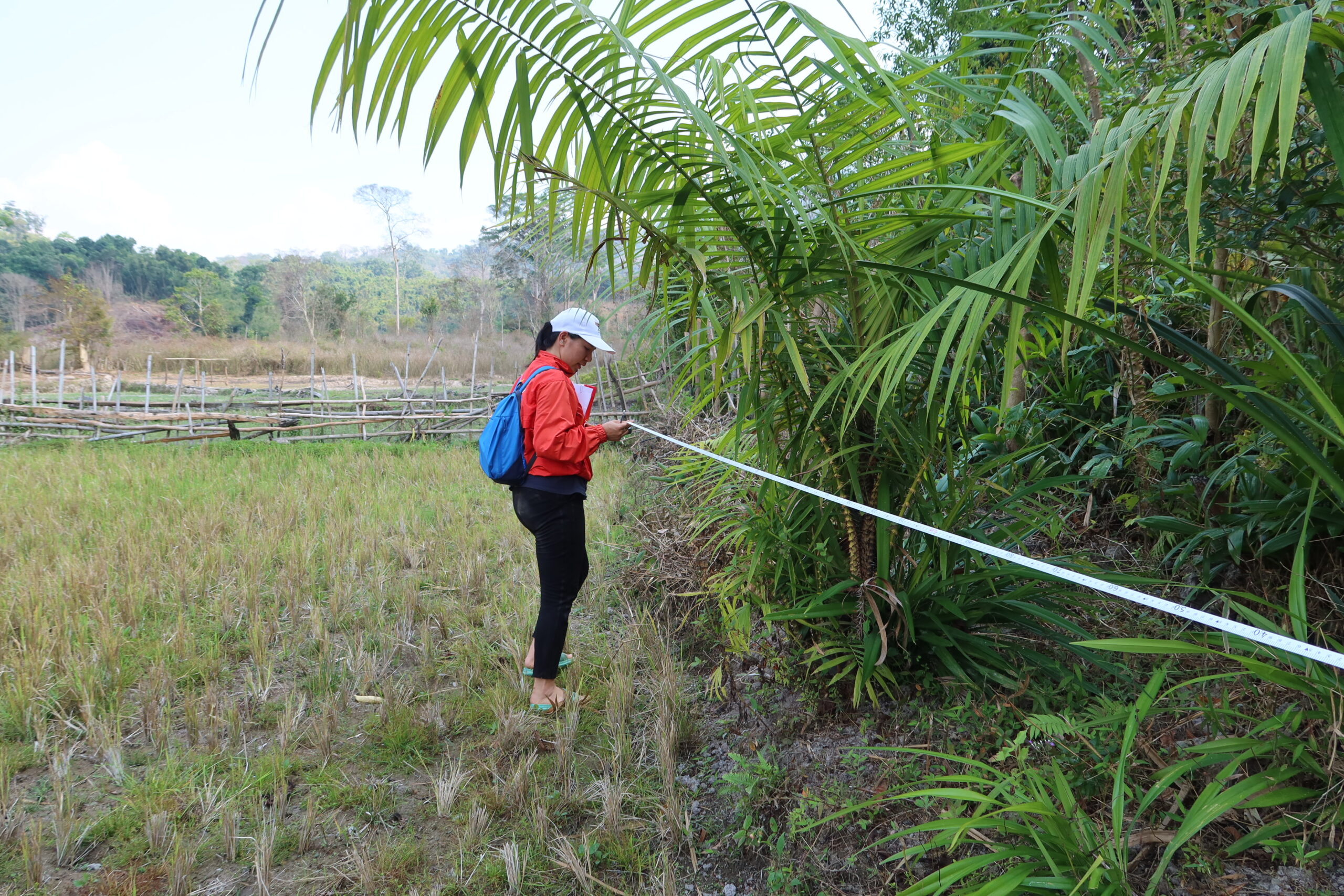
Field practice
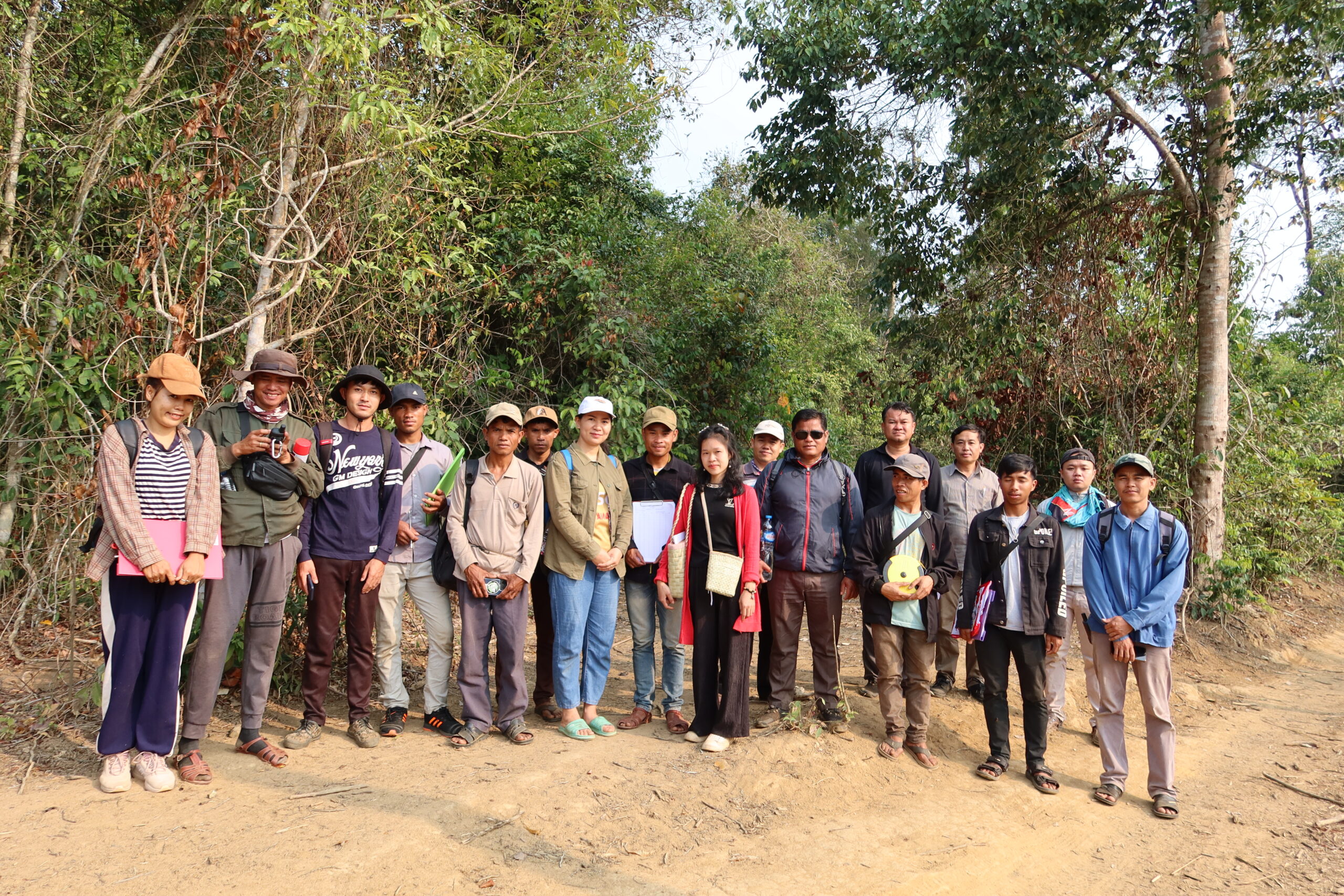
Trainees in the field
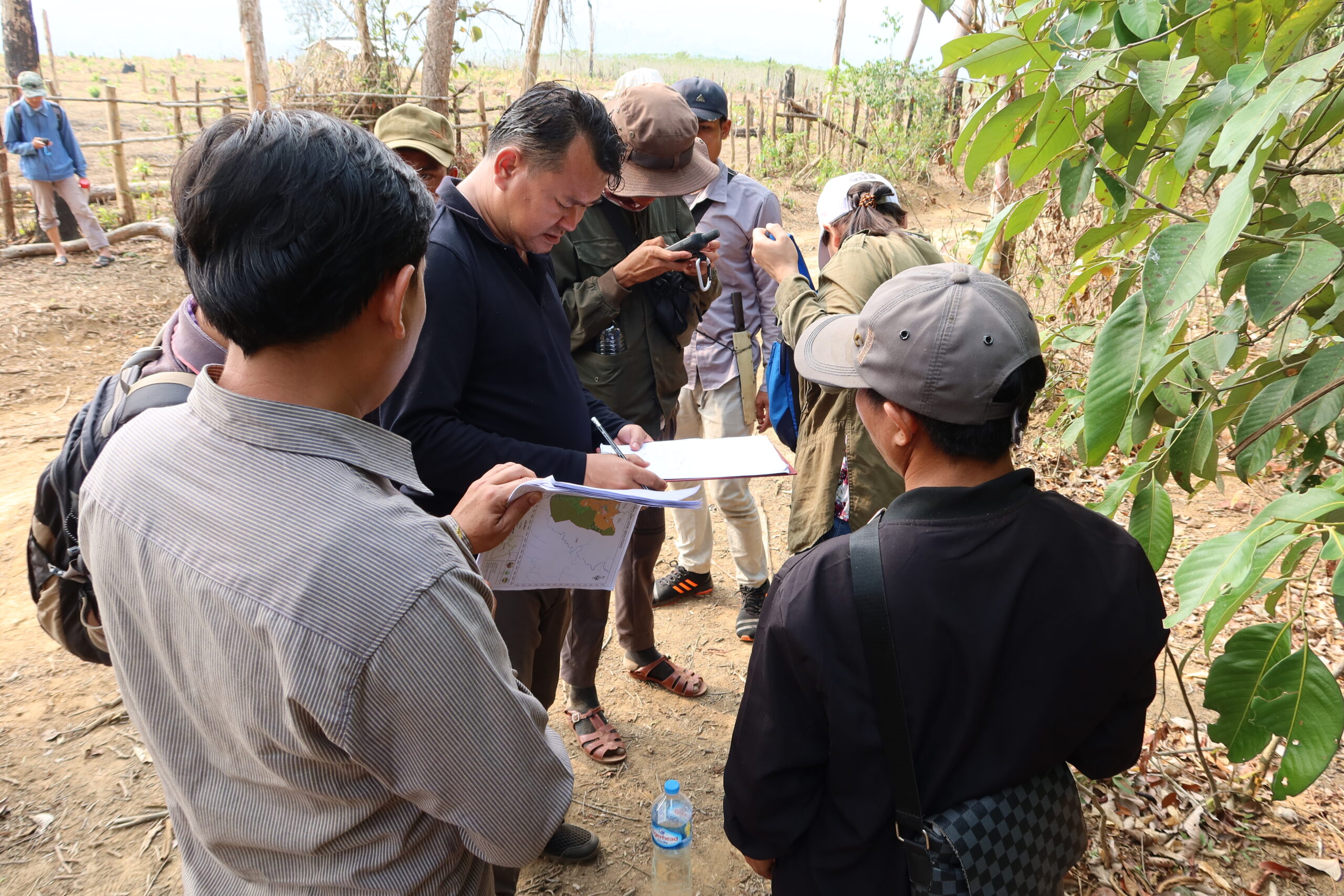
Field practice
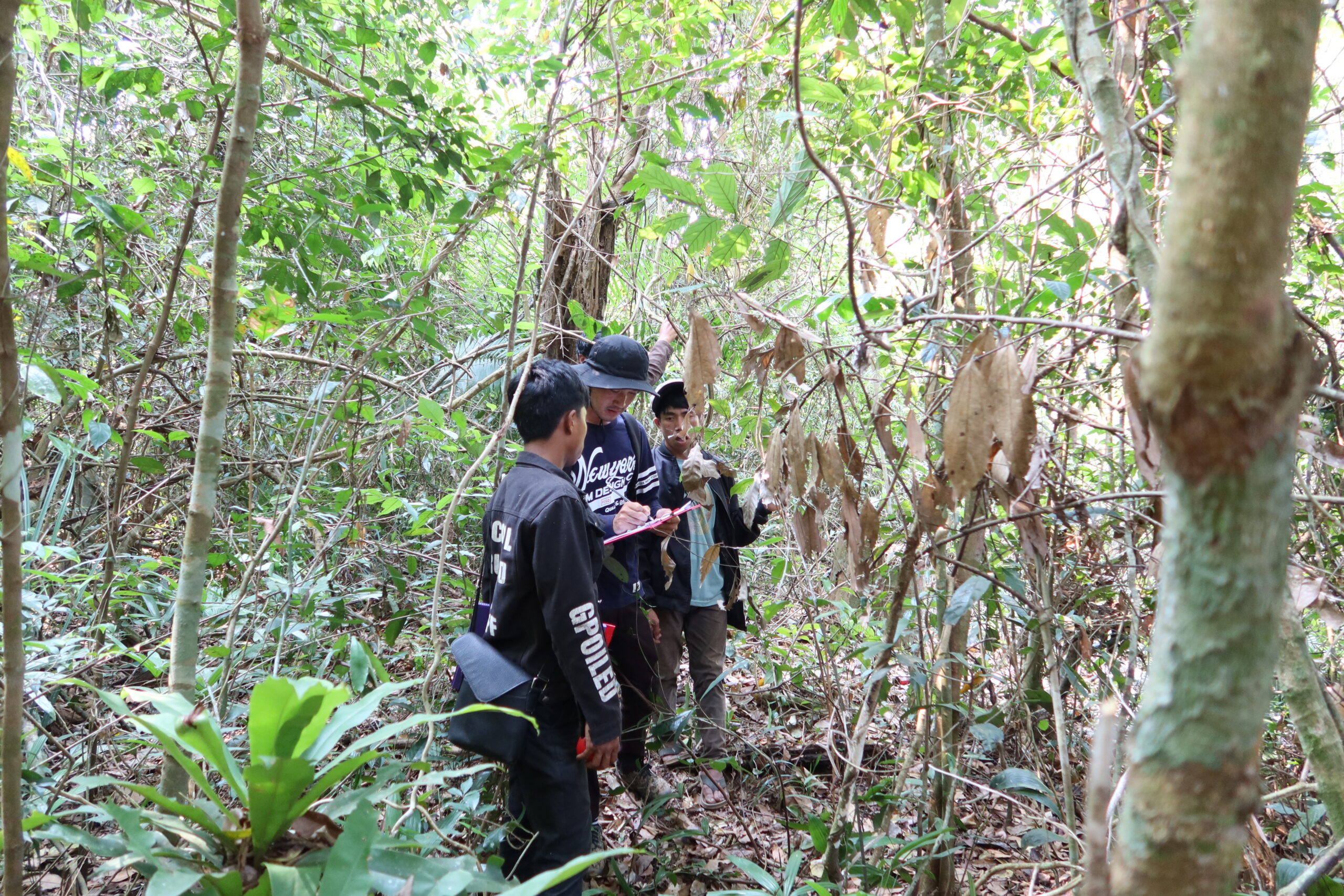
Field practice
